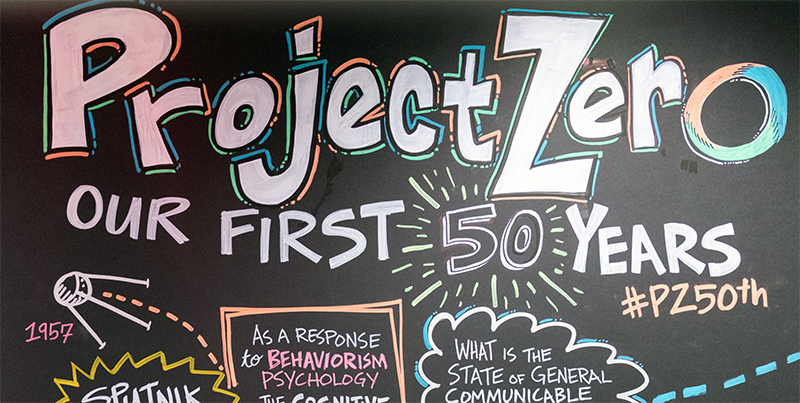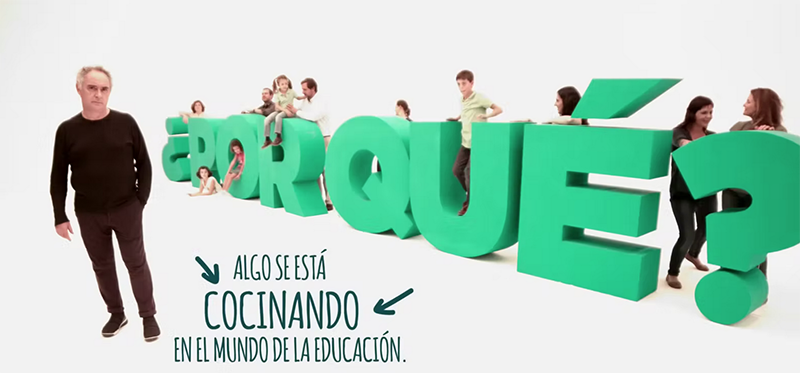Stop for a moment and reflect. When was the last time you asked yourself a question? But a good question. Like those about the meaning of life. Okay. Let’s tone it down a bit. When was the last time you questioned something? Something simple. Such as the results of your last internet search. Now I’m going to ask you the same question as the one someone very important asked me not long ago. “Mum, how do you know that what you think is true?”
In a world of “alternative truths” and infoxication with a proliferation of fake news amplified to infinity by the loudspeaker of social media, critical thinking has become one of the most important skills (if not the most important skill) to learn and teach at schools. In fact, in 2020, critical thinking and problem-solving topped the list of the most important skills for the World Economic Forum, also known as the Davos Forum. The problem is that it isn’t often very present in our lives. An example?
In 2022, the research titled Secondary school students and media literacy in the age of disinformation conducted by the Carlos III University in Madrid highlighted that secondary school students are chiefly informed through social media, television, their families and groups of friends, that they have difficulty in discriminating between information and opinion and that, although they regard themselves as capable of differentiating between news and hoaxes, more than half of them can’t distinguish between fake and real news. According to the teachers at some of these schools, the students consume media uncritically, a habit which is fostered by the compulsive consumption of audiovisual and digital media.
So, are today’s students prepared to cope with the increasing volume of information that characterises our society? Is the school responding to this challenge? What is critical thinking and how can it be taught?
According to a UC3M study, secondary school students have difficulty discriminating between information and opinion and, although they consider themselves capable of differentiating between news and hoaxes, more than half of them do not distinguish between fake and real news.
What is this?
Critical thinking is a mental process that involves analysing, evaluating and synthesising information to reach a well-reasoned and well-founded conclusion. It involves questioning incoming information, evaluating it with an objective approach and considering multiple perspectives before making a decision or taking a position. It also involves being able to identify fallacies and unsound arguments and detecting assumptions and biases that may influence the way we think or reason.
Suppose, for example, that you read an article on the internet about a new medical treatment that claims to cure a particular disease. Before accepting this information as true, you should use critical thinking to assess the quality of the information. Thus, you could ask ourselves: Where does this information come from? Who wrote the article and what are his/her credentials? Are there any studies or research to support this claim? Has it been approved by medical regulatory agencies? Are there alternative views or perspectives on this treatment?
By asking these questions and seeking reliable and verifiable answers, we can assess the quality of the information and form an informed opinion about the treatment.
Is critical thinking born or made? Can it be learnt? Of course it can. For some experts, such as David Bueno, a doctor of Biology and director of the Chair of Neuroeducation at the University of Barcelona, babies are born with a certain capacity for critical thinking that we lose with age. We can explain the above by means of an experiment.
Offer a child a simple object, e.g. a plate (an unbreakable one, of course) and show him how to use it. He will automatically start experimenting with it in every possible way. He’ll have observed how adults use the plate and he’ll use it to pretend that he’s eating; he’ll also experiment with the plate (he’ll throw it on the floor to see what happens, put it on his head as if it were a hat, bang it on the table, etc.) and find a thousand different uses for it other than the one we’ve shown him. The child is using critical thinking. How? By analysing the structure and consistency of what we’ve conveyed as true in order to judge, infer and evaluate.
So why do we stop using it? According to Bueno, the reason for this change is simple and has a certain biological logic; constantly using critical thinking through reasoning, philosophical logic and scientific methods is a task that consumes a lot of brain resources and, little by little, with age, we have to devote our time to other tasks as well.
So what can we do to develop critical thinking and use it throughout our lives? Firstly, following Bueno’s logic, we have to do everything possible to incentivise it from an early age, “so as to ensure we don’t stop thinking critically”. Philosophy helps. As a discipline that seeks to understand and reflect on the world around us. Philosophy, among many other things, involves asking deep and far-reaching questions about the nature of reality and knowledge. In this regard, children are great philosophers. Because philosophy is born of wonder, which is the natural state that children live in; wonder and the search for answers to everything that surrounds them: Why do we exist? What are we doing here? What happens when we die? What is justice and who decides what is just?

Imagen de bluelela en Freepick.
As is explained very well in this article, philosophy and childhood constitute a binomial that isn’t just possible but also desirable. Getting children to philosophise is an excellent way of getting them to stop and think, look, reflect and question things. The pedagogy of the question instead of the pedagogy of the answer.
We can help them with readings and stories (for example, The Little Prince can be a good way of discussing topics such as friendship, loneliness and the meaning of life), promote group discussions (in which, moreover, they learn to respect the opinions of others, even if they don’t agree with them), use role-playing games that help them to understand philosophical concepts in a more specific way and, as we will see below, use the arts in their multiple manifestations.
To encourage critical thinking in children, we can help them with stories, promote group discussions and use the arts in their many manifestations.
The arts and philosophical and critical thinking
The arts can also be a valuable tool in the development of philosophical thinking. Reflecting on, for example, works of art, music, literature and cinema can lead to philosophical questions and a deeper understanding of ethical and aesthetic issues. Moreover, philosophy and the arts have the search for new perspectives and the exploration of new ideas in common. The arts can help to develop creativity and the ability to conceive innovative solutions to philosophical and social problems. It is no coincidence that many great artists were also great thinkers.
The arts can help students to understand different perspectives, cultures and ways of life, thus fostering empathy and intercultural understanding. Empathy is a key skill in philosophy, as it helps students to understand other people’s points of view and comprehend arguments from different perspectives.
In this regard, David Bueno believes that activities related to music and the plastic arts should form the main pillar of early childhood education and at least the first years of primary school, based upon which all other necessary aspects of knowledge will be worked on.
How to teach critical thinking at schools
As we’ve mentioned above, despite the innate ability of young children to ask questions that should be encouraged and developed, the development of critical thinking requires deliberate, systematic and express teaching, and school is one of the best places to develop these skills. Here are some ways of teaching critical thinking in schools:
- Teaching analytical and evaluative skills: the teachers can teach the students to analyse and evaluate the information that they receive. This may involve teaching them to ask critical questions about the information, identify underlying assumptions, assess the validity of the sources and acknowledge biases.
- Encouraging discussion and debate: discussion and debate in the classroom can be an excellent way of encouraging critical thinking in the students. The teachers can present the students with alternative perspectives on an issue and encourage discussion and debate regarding the arguments presented.
- Teaching creative thinking: critical and creative thinking go hand in hand. The teachers can teach the students to think outside the box, consider multiple perspectives and seek creative solutions to problems.
- Teaching problem-solving skills: the educators can teach the students to resolve problems effectively by using a systematic approach. This may involve teaching the students to identify the problem, generate alternative solutions and evaluate potential solutions.
- Integrating technology: technology can be a valuable tool when it comes to fostering critical thinking in the students. The teachers can use tools such as online searches, data analysis and content creation to help the students to develop critical skills.
Critical thinking is an essential skill in addressing the complex challenges of tomorrow’s society and fostering a more just, equitable and innovative future. Encouraging its development in schools will be the greatest favour we can do for the next generation. Let’s teach them to question the world to enable them to improve it.
References
Well, David. September 2018. Can we learn to think critically? The Education Journal. Retrieved from https://eldiariodelaeducacion.com/2018/09/25/se-puede-aprender-a-pensar-criticamente/






